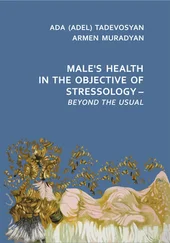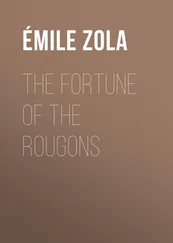“The other night when you arrived, do you know why I opened the door? Do you know why I let you in?” His voice was soft, almost a whisper. He asked the question with an intense look. “I thought you were Mama. You understand? Mama.”
He pointed to the portrait on the bookshelf without even turning his head in that direction. Nora came closer to him. She wanted to console him.
“I knew you wouldn’t be frightened. Do you believe in ghosts? I do. You see, since Mama’s death, I’ve been waiting for her. Sometimes I go to the window, sometimes I open the door… I wonder why she doesn’t come…”
“Maybe she’s here…” Nora said simply, without lowering her voice. She grasped that after hearing such things she must speak with familiarity and without mystery.
“Yes…” Gunther said. “In a certain way, she is here. Here with us: Hagen, Faffner, me… She loved all three of us… She’s here but I don’t see her. I’d like to see her, I feel I should be able to see her… I’ve told you that I believe in ghosts. I think about her long dresses, I think about her blonde hair, which she wore in an old-fashioned hairdo, even though she was so young…”
Nora walked towards the bookshelf and picked up the portrait. She observed it closely, with great attention. The lips were poorly drawn, the high, sad forehead resembled that of the boy, there was a light wave in the hair on her temples. In the corner was written in pencil: Mittwoch, den 5 Mai 1932. 20 Gunther.
“It was a very sunny day,” Gunther said. “I remember it very clearly. She was wearing a white dress, her first white dress of that summer. As a joke, I’d made a lot of meaningless sketches. I wanted to throw them out. She took them all and asked me to sign this one. She liked to see me drawing. She thought…she thought I had talent. She thought I was going to be a painter.”
“And you no longer want to be one?”
“I can’t.”
“Even so, if she believed… Maybe you should, in her memory…”
Gunther got up from the armchair, barely restraining a fresh outburst of anger.
Again Nora had tugged on gnarled ropes, knocked at locked doors.
The rapidity with which this blond boy could pass from one expression to another, from one mood to another, was amazing. One moment his nerves were choking him, the next he rediscovered his glowing ironic smile. “Do you know what a cardiogram is?”
Nora hadn’t understood the question and didn’t know to reply. “Wait and see,” Gunther said.
He opened a drawer, hunted through notebooks and sketch pads and pulled out a small scroll of paper, which he unfurled in front of her. It was a thick, glossy paper of photograph quality, containing black rectangles crossed by two thin lines that went up and down in zigzags at tight angles. It looked like the inscription of seismograph readings, such as she remembered having seen in geology books at school. “You see those white lines? They’re heartbeats.”
He was still smiling. He spoke calmly and without discomfort. After a moment’s silence, he added: “The beating of my heart.”
Nora thought of his pallor, his nervous trembling, the sudden changes of light and shadow on his childlike face. She tried to take this lightly, not to insist, to brush it off. “You’re joking, Gunther.”
He replied with laughter, a laugh in which nothing was forced, nothing constrained.
“Of course it’s a joke. Much more than a joke: a farce. It’s the most terrible farce I could play on the Grodeck family.” He seemed to find the thought sincerely amusing. “Look, a painter in the Grodeck family would have been shameful. A cardiac patient in the Grodeck family is a scandal. This is the first time this has happened since there have been Grodecks on the earth. Their hearts have always beaten strongly. Their hearts have been true.” The word amused him. He noticed it and took pleasure in repeating it. “Yes, yes, true hearts. Hearts that have beaten like clocks. Never too fast, never too slow. Hearts that beat for one century, two centuries, three centuries and don’t ask anybody anything. Grodeck hearts are guaranteed. Solid and discreet. Nobody hears them.”
He unfurled the cardiogram again and showed her the two white lines that went up and down. He followed their delicate course, their rhythmic fall, with his finger. “You see, here the angles are tight and even. But when you look more closely, you can see that sometimes the line darts up and then it drops a little lower down. It’s not a lot. A tenth of a millimetre, maybe not even that… But it’s enough. Enough to be audible.”
All at once he lifted his head from the cardiogram and stared fixedly at Nora. “Don’t you hear it? I do. Especially in the evening, especially at night. It’s like a little hidden motor. In the middle of the night, when everything’s still, I feel like it’s audible all over the house. A Grodeck heart that’s audible… It’s unbelievable. The Grodeck fortune has been made with everything you can name, but not with the heart…”
He rolled up the scroll as it had been before and placed it carefully back in the drawer. Then he returned to the fireplace and leaned there with his arms at his sides, a posture that helped him breathe.
Nora sensed that the boy expected neither compassion nor support. He was very calm, and his blue eyes resembled lights. “What are you thinking of doing?” she asked.
“I want to turn twenty-one.”
“You’ll do it,” Nora said.
He was shaken by the soft conviction of her words. Suddenly, his gaze became intense, pleading, full of doubts and uneasiness. “Do you think so? Tell me, do you really think so?”
“I’m certain, Gunther. Absolutely certain.”
Hagen returned late, in the dark. All three of them waited for him, taking turns looking out the window in the tower for his lantern to appear in the distance through the woods. Faffner had disappeared while it was still daylight, heading off down the valley.
“He feels him coming,” Gunther said. “Whenever he returns from Braşov the dog goes down to Ruia and waits for him there. One evening, Hagen took a different route and returned by way of Wolf’s Precipice. Faffner spent the whole night in Ruia, howling…”
Now they saw the two of them coming through the deep snow: the man and the dog. Hagen dragged the flat wooden sleigh, full of packages, behind him. They opened them all around the table, curious to discover what lay inside. They were objects that smelled of the city, of winter display windows, of holidays. Gunther regarded them with boyish pleasure, he weighed them in his hand, and observed them under the light. He liked best the coloured glass balls, red candles and sparklers for the Christmas tree.
Faffner circled the table, smelling the objects, sniffing them.
Only Hagen’s brow remained dark…
That man knows , Nora thought.
EVENINGS IN THE CABIN WERE LONG, in spite of the fact that at ten o’clock they extinguished the lights, closed the shutters and all went to bed. But the evenings started early, when darkness fell, and passed slowly. The twilights were white from the snow, which continued to shimmer for a while after the sun set. Finally this sheen, too, disappeared. Sometimes the mist continued to smoulder from the summit. The clouds piled up closer to the cabin. The fir trees turned black. The darkness was deep and dense.
The mountains, which roared all day with the sounds of shouts and cries, returned to their stoney silence. Not a whimper or a crackle from anywhere. Far away in the distance, they heard a muted inrush, like a slamming on the earth, like the falling of a tree. They all poked their heads up to listen. The silence seemed to stretch to the ends of the earth.
Читать дальше












